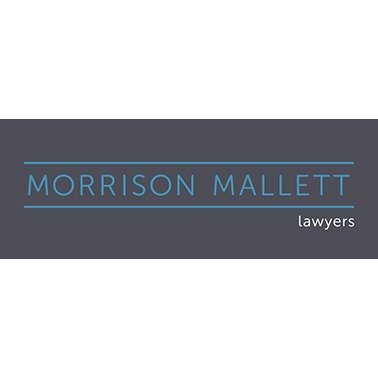Best Copyright Lawyers in Wellington
Share your needs with us, get contacted by law firms.
Free. Takes 2 min.
List of the best lawyers in Wellington, New Zealand
About Copyright Law in Wellington, New Zealand
Copyright Law in Wellington, New Zealand, is a part of the nation's broader intellectual property law and is designed to protect the rights of creators over their original works. This includes a wide variety of creations such as books, music, paintings, sculpture, films, television programs, and computer programs. Under the Copyright Act of 1994, a work is automatically copyrighted at the time of its creation, with the author or creator having exclusive rights to reproduce, distribute, and display the work.
Why You May Need a Lawyer
While New Zealand's copyright law is automatic, meaning you do not need to register your work, disputes can occur. Issues like unauthorized use, accusations of infringement, or complexities in joint authorship can necessitate the need for a lawyer. Additionally, if you want to license your work or transfer your copyright to another party, it is advisable to seek legal counsel to ensure that your rights are fully protected.
Local Laws Overview
The key aspects of copyright law in Wellington follow the broader New Zealand law. It is crucial to understand that Copyright law protects the expression of ideas rather than the ideas themselves. Upon the creation of work, copyright protection begins automatically, assuming the work is original and involves some level of skill, judgement, or labour to produce. The duration of copyright varies, but it typically lasts for the life of the author plus 50 years. Infringement of copyright carries with it legal consequences, but exceptions exist, such as fair dealing, which allows limited use of works without permission in certain circumstances.
Frequently Asked Questions
1. Do I need to register my work for copyright?
No, in New Zealand, copyright is automatic. As soon as you create and express an idea in some material form (such as writing it down or recording it), it is protected by copyright.
2. How long does copyright last?
Generally, in New Zealand, copyright lasts for the life of the creator plus 50 years. However, this can vary depending on the nature of the work.
3. What happens if someone uses my work without permission?
If someone uses your copyrighted work without permission, they may be infringing your copyright. You may wish to seek legal advice as you may have the right to stop them and seek compensation.
4. Can I sell or pass on my copyright?
Yes. Copyright is a property right which, like physical property, can be sold, inherited, or transferred.
5. What can I do if someone accuses me of copyright infringement?
If you are accused of infringement, it is crucial to seek legal advice immediately. In some cases, you may have a defence, such as fair dealing.
Additional Resources
The Intellectual Property Office of New Zealand provides useful resources and advice on copyright law. You can also consult the official website of the New Zealand Copyright Council. For legal assistance, it is advisable to consult a lawyer specializing in intellectual property or copyright law.
Next Steps
If you believe you need legal assistance regarding copyright matters, it is advisable to consult with a lawyer specializing in copyright or intellectual property law. They will be able to guide you through the complexities of the law, protect your rights, and represent your interests.
Lawzana helps you find the best lawyers and law firms in Wellington through a curated and pre-screened list of qualified legal professionals. Our platform offers rankings and detailed profiles of attorneys and law firms, allowing you to compare based on practice areas, including Copyright, experience, and client feedback.
Each profile includes a description of the firm's areas of practice, client reviews, team members and partners, year of establishment, spoken languages, office locations, contact information, social media presence, and any published articles or resources. Most firms on our platform speak English and are experienced in both local and international legal matters.
Get a quote from top-rated law firms in Wellington, New Zealand — quickly, securely, and without unnecessary hassle.
Disclaimer:
The information provided on this page is for general informational purposes only and does not constitute legal advice. While we strive to ensure the accuracy and relevance of the content, legal information may change over time, and interpretations of the law can vary. You should always consult with a qualified legal professional for advice specific to your situation.
We disclaim all liability for actions taken or not taken based on the content of this page. If you believe any information is incorrect or outdated, please contact us, and we will review and update it where appropriate.









